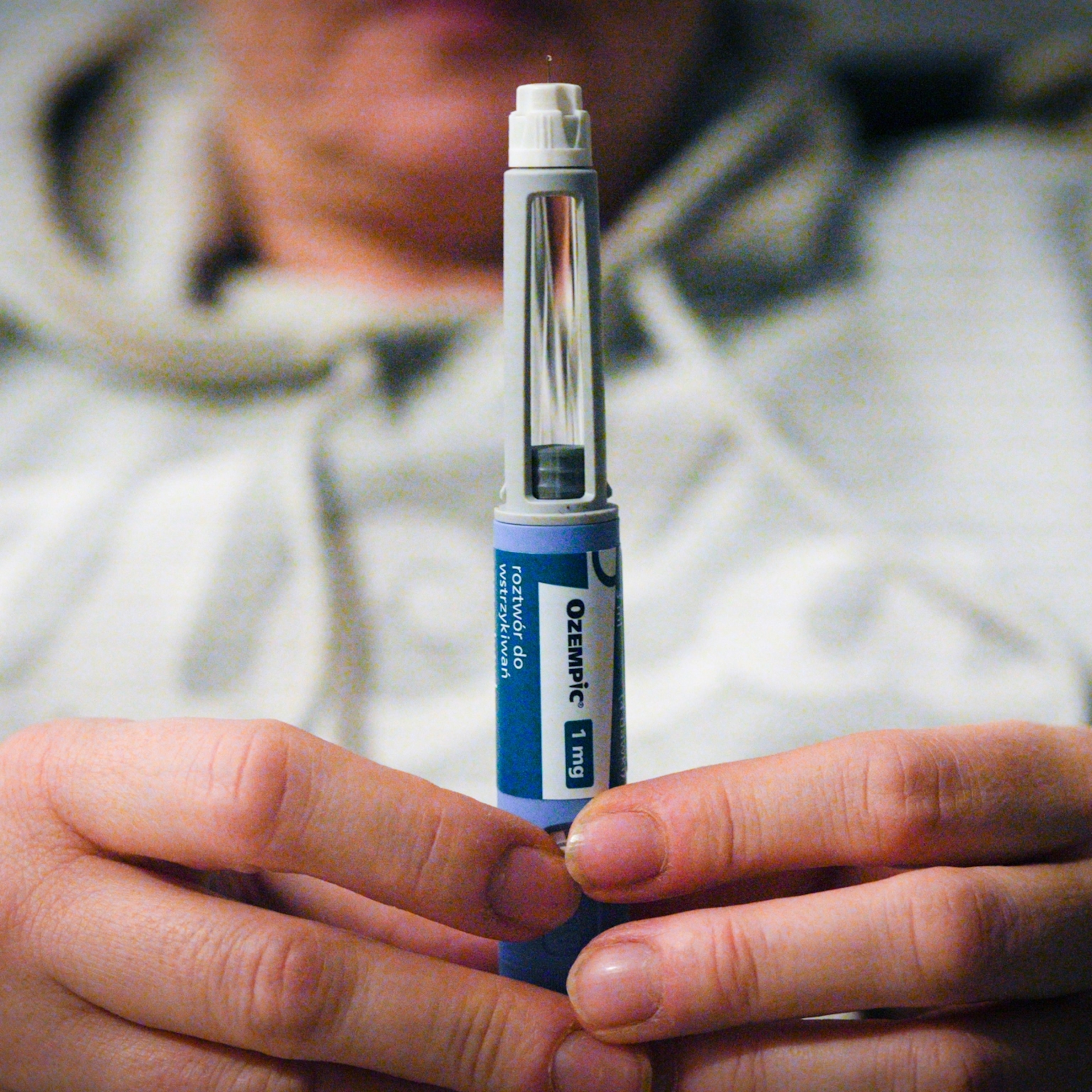Giving up sugar can change your body for the better—within days
Reducing sugar intake can provide many surprising health benefits—from better skin to a lower risk of diabetes. “We’re talking potential improvements within days or weeks, not months or years.”

Most of us know that eating too much sugar isn’t good for us. With its consumption being linked to health dangers like obesity, fatty liver disease, type 2 diabetes, heart disease, and cancer, sugar is high on most our lists of vices worth giving up.
But it turns out that reducing sugar intake not only helps you avoid the harms of overconsumption—it can also bring about surprising upsides you won’t have to wait long to benefit from. These include "improved mood, skin health, dental hygiene, cognitive function, and even athletic performance," says Amy Goodson, a nutritionist and registered dietitian based in Dallas.
(Here's how sugar and fat affect your brain.)
Here's how people reap such benefits, why some sugars are more worrisome than others—and what you can do to start limiting your sugar intake today.
What kind of sugar is bad for you?
The first thing to understand is that not all sugar is bad for you because there’s a big difference between natural sugars and added sugars.
Natural sugars like glucose in bread, fructose in fruit (and many vegetables), and lactose in milk are naturally occurring. They not only provide energy but also offer sweetness and flavor to entice us to eat the foods that contain important vitamins, minerals, and other nutrients. Those nutrients offset the sugar contained therein.
Mangoes, for instance, contain more natural sugars than almost any other fruit—more than 20 grams in a medium-sized one. But that same mango also contains protein, calcium, iron, magnesium, potassium, vitamin C, and, most importantly, plenty of dietary fiber to "slow absorption of the sugar to make it easier for the body to handle," says Alice Lichtenstein, a senior scientist and diet and chronic disease prevention leader at the Jean Mayer USDA Human Nutrition Research Center on Aging at Tufts University.
In other words, yes, you're eating a lot of sugar, but you're also getting many important nutrients your body needs along with fiber to ensure it absorbs that sugar slowly, thereby minimizing blood sugar spikes and helping your energy last.
Added sugars, on the other hand, "are sugars that are introduced to foods or beverages during processing, cooking, or at the table," says Goodson. These are shown as “added sugars” on a food's Nutrition Facts label—and the U.S. Food and Drug Administration recommends limiting their consumption to 50 grams per day.
There are more than 260 names for various added sugars on food labels (any ingredient that ends with "ose" or “syrup” is a type of sugar,) which are added to preserve a food, increase texture or bulk, and, most commonly, to sweeten or improve the taste of often unhealthy and ultra-processed foods. Worse, foods with added sugars don’t provide meaningful amounts of any vitamins, minerals, or dietary fiber to offset them.
"This is why added sugars are often referred to as 'empty calories,' as they are calories that lack nutrients," explains Katherine Zeratsky, a registered dietician nutritionist at Mayo Clinic.
How reducing added sugars helps you avoid health dangers
The harms associated with eating or drinking too many added sugars are significant and include an increased risk of developing autoimmune disorders such as Crohn's disease and multiple sclerosis, higher blood pressure, and increased risk of more than a dozen different cancers. A 2023 BMC Medicine study also shows that even a 5 percent increase in added sugars comes with a 6 percent higher risk of heart disease and a 10 percent higher risk of stroke.
Such harms occur, in part, because any consumed sugar that isn't used for energy is stored as fat, "which results in increased weight gain and insulin resistance—leading to diabetes, obesity, and associated adverse outcomes," says Elaine Hon, clinical dietician and a certified diabetes care and education specialist at Stanford Health Care.
(How much of a role does genetics play in obesity? Experts weigh in.)
Goodson says that excessive sugar consumption can also lead to increased fat storage in the liver, contributing to scarring and limited functionality of the vital organ—a condition known as fatty liver disease.
Added sugars also feed the bad bacteria in the gut, which can lead to chronic inflammation and an imbalance of healthy organisms. "This has been linked to a host of mental health issues," says Uma Naidoo, a nutritional psychiatrist practicing in Massachusetts and the author of This is Your Brain on Food.
Surprising health benefits of cutting out sugar
Dropping or limiting added sugars in the diet can help you not only avoid such outcomes but can also improve your quality of life, in part, because consuming less sugar reduces the production of a group of harmful molecules known as AGEs, which are associated with premature aging and chronic conditions such as Alzheimer's disease.
"When excess sugar is present in the bloodstream, it can bind with lipids or proteins like collagen and elastin and contribute to aging skin such as wrinkles and a loss of elasticity," says Jen Messer, a registered dietitian and president of the New Hampshire Academy of Nutrition and Dietetics.
This is one reason eating less sugar has been shown to boost your skin health. Another study shows that sugar affects sleep quality by overstimulating the brain—thereby making it more difficult to fall asleep—and by causing blood sugar crashes that can wake you up feeling thirsty, hungry, or needing to use the bathroom.
(Sugar doesn't actually make kids hyper.)
And because sugar can block chemicals in the brain that help regulate emotions, it can affect your mood as well. Hon says this is one reason reducing added sugars can also “lower your risk of depression.” It’s also why limiting consumption can improve stress levels.
"Reduction in added sugars can also boost athletic endurance by stabilizing blood sugar levels," adds Goodson.
Even temporarily reducing sugars can provide benefits
You benefit the most when you cut out or reduce your sugar intake permanently or for extended periods of time—but even temporary reductions can be good for you. "One small study showed that adolescent and teen boys with liver steatosis who followed a low-sugar diet for just eight weeks improved their liver health," says Zeratsky.
Walter Willett, a professor of epidemiology and nutrition at Harvard T. H. Chan School of Public Health, says it's also known that reductions in added sugar intake can "rapidly" lower your risk of type 2 diabetes: "We're talking potential improvements within days or weeks, not months or years."
Limiting sugar intake before a test may also help you think more clearly as there’s evidence that sugar hinders one's ability to focus—plus additional research showing it can block memory receptors in the brain.
Short-term decreases in added sugar can also help you avoid sugar crashes and reduce sugar cravings overall, "making it easier to maintain energy and healthier habits in the long term," says Goodson.
Tips for keeping sugar intake down
To reap the benefits of giving up sugar, start by identifying where you may be consuming too many added sugars.
"By far the most important step is to avoid soda or other sugar-sweetened beverages—or have them only occasionally," advises Willett. Indeed, a single 20-ounce bottle of Coca-Cola contains 65 grams of added sugars—30 percent more than most people's entire daily limit.
Messer says it's also imperative to get in the habit of checking food labels for added sugar content and to be mindful that many of us eat more than one serving per sitting.
She also suggests gradually reducing the amount of sugar used in recipes or replacing it with spices like cinnamon, nutmeg, vanilla, or almond extract. "These add flavor without the need for extra sugar," she says.
"By making small, consistent changes to lower your sugar intake," echoes Goodson, "you’ll feel better, have more energy, and improve your health in both the short and long term."








